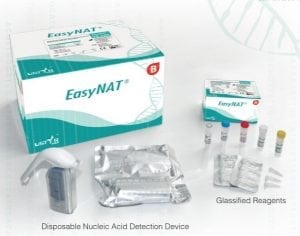
Agriculture
February 14, 2024
EasyNat TB-CPA Diagnostic Kit
Read SolutionImplemented by
USTAR Biotechnologies (Hangzhou) LTD
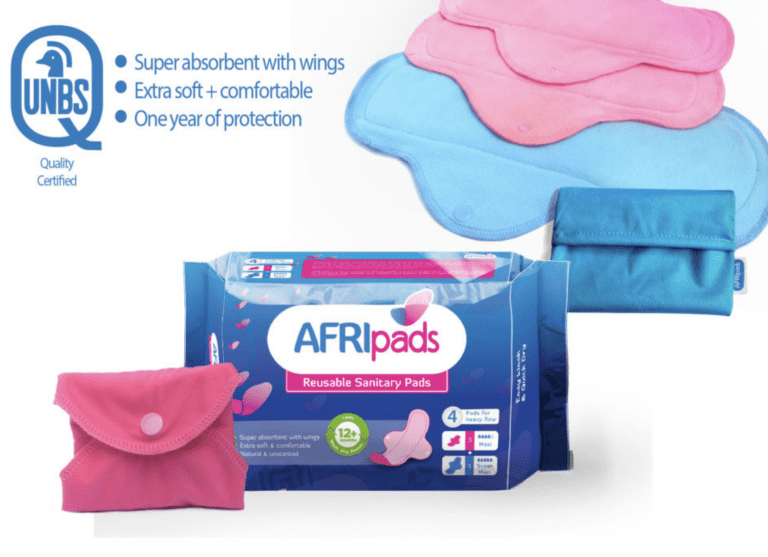
Updated on December 14, 2023
·Created on June 26, 2017
The AFRIpads Menstrual Kit is a set of four reusable sanitary pads, plus one storage bag, sold in Uganda, Malawi and Kenya.
The AFRIpads Menstrual Kit is a set of 4 reusable sanitary pads plus 1 storage bag. They have a 12-month lifecycle and are solid in Uganda, Kenya, and Malawi. The design is a reusable pad that buttons securely into a pair of underwear, providing about 8 hours of use with a 2-hour drying period after washing.
Target SDGs
SDG 3: Good Health and Well-Being
Market Suggested Retail Price
$15.00
Target Users (Target Impact Group)
Household
Distributors / Implementing Organizations
NGOs and international relief agencies, as well as by direct consumer purchases. Partners include Save the Children, ADRA, Plan International, and others.
Competitive Landscape
Direct competitors include Be Girl PeriodPanty, Real Relief Safepad, Eco Femme Subsidized Pads, Be Girl FlexiPads, Saathi Pads, MakaPads Sanitary Pads, and Lunapads.
Countries
Kenya, Malawi, Uganda
Manufacturing/Building Method
AFRIpads Menstrual Kits are produced at their manufacturing facility, located in a rural area in Southwestern Uganda.
Intellectural Property Type
Trademark
User Provision Model
These products are distributed by NGOs and international relief agencies around the world, as well as by direct consumer purchases in Uganda.
Distributions to Date Status
Over 3.5 million AFRIpads Menstrual Kits distributed and counting.
Absorbency types
The deluxe AFRIpad kit provides 3 Maxi pads (20 mL absorption) and 1 super Maxi pad (30 mL absorption).
Absorbent base materials
Fleece
Usability Features
Pad buttons into pair of underwear, pad fold for storage, storage bag included.
Design Specifications
AFRIpads are made of fleece.
The Deluxe Menstrual Kits include
The pads are unscented and the wings button into a pair of underwear. AFRIpads also offers variety kits including 5 packs, 6, packs, 8 packs and more.
Technical Support
AFRIpads have an instructional video to assist with care, and can be contacted here with questions.
Replacement Components
None
Lifecycle
12+ months
Manufacturer Specified Performance Parameters
AFRIpads’ specified performance targets include absorption (20 ml and 30 ml for maxi and super maxi, respectively), 2-hour drying time, 12+ month lifecycle, cost-effective and eco-friendly.
Vetted Performance Status
Based on the double XConomy study, girls said the cloth pads they had been given were more reliable than customary methods, AFRIpad had sturdier design than Mwezi Pad, and there is a potential health and safety risk from poor hygiene resulting from lack of access to soap and clean water.
Safety
Complementary Technical Systems
soap, water, underwear
Academic Research and References
Montgomery, P., et al., 2016, Menstruation and the Cycle of Poverty: A Cluster Quasi-Randomised Control Trial of Sanitary Pad and Puberty Education Provision in Uganda. PLoS ONE. Vol 11.
Scott, L., et al., 2013, Sanitary Pad Acceptability and Sustainability Study. University of Oxford.
Hennegan, J., et al., 2016, Measuring the prevalence and impact of poor menstrual hygiene management: a quantitative survey of schoolgirls in rural Uganda. BMJ Open. Vol 6.
Tokuda, K., 2015, Prosocial Cost-benefit Analysis and Hybrid Organization’s Social Impacts on The Extreme Poor: A Case Study of Lunapads, a B Corporation. International Proceedings of Economics Development and Research, Singapore, 85, pp. 26-33.
Millington, K.A., Bolton, L., 2015, Improving access to menstrual hygiene products. GSDRC.
Crofts, T., Fisher, J., 2012, Menstrual hygiene in Ugandan schools: an investigation of low-cost sanitary pads. Journal of Water Sanitation and Hygiene for Development, 2, pp. 50-58.
Compliance with regulations
AFRIpads uses Lunapad's design, which is FDA compliant
Evaluation methods
Double X Economy’s study used these methods:
402 secondary school girls participated. All received MakaPads and were instructed to use the Mak1 Incinerator to dispose of pads. In addition to MakaPads, 1/3 received AFRIpads; 1/3 received MakaPads; 1/3 received a package of 6 KMET Pads.
Surveys on demographics, knowledge of menstruation, and past practices were conducted. At the end of the trial, the girls were interviewed on their experiences. Focus groups and a survey about wealth and spending money were conducted with girls and boys.
Study results can be found in the link above.
According to Lunapads, customers are often recruited to test products and give feedback, which is used as the guide for product use. Different products may be developed with different goals in mind, which requires sourcing and testing of different materials/fabrics to make sure they perform to standards. [Interview with representative]
Other Information
None

Agriculture
February 14, 2024
Implemented by
USTAR Biotechnologies (Hangzhou) LTD
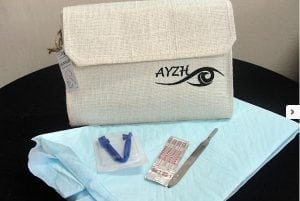
Agriculture
November 17, 2023
Implemented by
AYZH
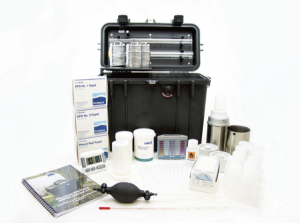
Agriculture
January 18, 2024
Implemented by
Barry Lloyd, University of Surrey
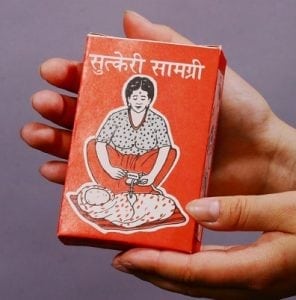
Agriculture
September 27, 2024
Implemented by
PATH
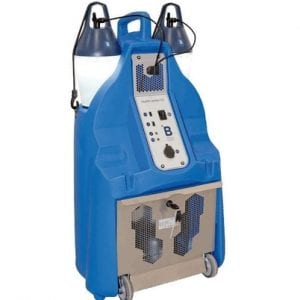
Agriculture
December 30, 2023
Implemented by
B Medical Systems
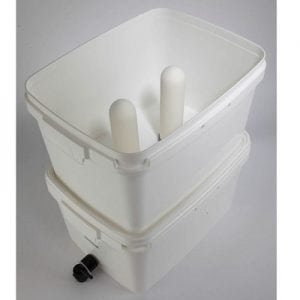
Agriculture
January 11, 2024
Implemented by
Doulton
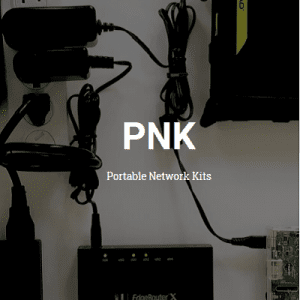
Agriculture
June 17, 2024
Implemented by
New America
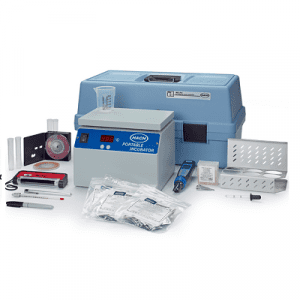
Agriculture
January 17, 2024
Implemented by
HACH
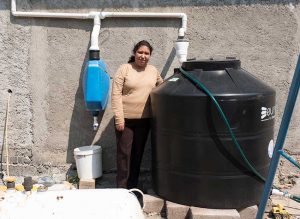
Agriculture
January 30, 2024
Implemented by
IslaUrbana
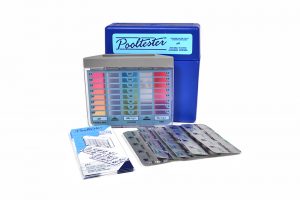
Agriculture
January 27, 2024
Implemented by
Palinter
Have thoughts on how we can improve?
Give Us Feedback